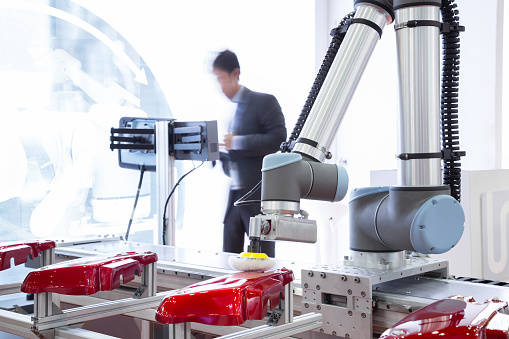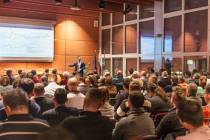Things to think about for the next decade
When I went into this independent career coaching business a little more than 20 years ago, I benignly thought the extent of what I’d be doing would be writing resumes, prepping clients for interviews, structuring job search plans and other predictable things like that.
Two decades later, that couldn’t be further from the whole truth. Surely those things remain important — and a significant part of my practice — but are they the “extent” of it? Not even close. Not anymore.
Think back 20 years and, at the same time, think about today. What marks the difference between the two times is not simply change; that’s a given. It’s the rate, scope and nature of change that forces us to deal with it in ways we never imagined we’d have to.
In that light, and knowing that a full discussion of any of the statements below could fill a book — or certainly a long conversation in my office — today I’m going to do exactly what the headline above suggests: give you things to think about, stopping short of turning each into its own discussion.
But I think they’re so clear and unassailable, that they should automatically germinate their own seeds of advice. If that’s not enough, I’ll be happy to hear from you.
You’ll be working longer than you thought or planned for. Retire at 65? Little chance. Seventy is more like it. Health, longevity, changing Social Security requirements and other factors make this a certainty.
One-quarter of all jobs in 2025 do not exist today, and we won’t know what they’ll be until they get here. Readiness, then, is as important as expertise.
Therefore, you’re not done learning, What’s more, you never will be.
The skills gap is larger than ever. Continuously learning new skills is not optional.
Even if you’re “securely” employed, you’ll need new skills if you want to work.
We’re about to see five generations in the workforce – concurrently. The newest generation? Let’s stop calling them “Gen Z.” That’s too generic and not descriptive enough. They’re “Gen V” (V = “virtual”) the first generation in history in which everyone grew up with the Internet – a totally different context.
The hybrid workplace will continue to see higher percentages of “gig workers” and shrinking percentages of full-timers. One day, that will reverse, but not yet. Among other things, this continues to shift the burden of health care away from the employer and onto the shoulders of the worker.
Therefore, health care, the 800-pound gorilla in the room, will become a 1,000-pound gorilla before it gets tamed. Wait! It already is.
Annual reviews will gradually give way to ongoing coaching. Hallelujah! However, this will be a very slow transition.
Augmented virtual reality will change how you’re being recruited and screened. Relating to bots is the new interpersonal skill.
Your co-workers will be multinational. And some of them will be robots.
Your organization will have to become more flexible. So will you.
Workplace learning will be more organic and internal. Understanding your company (and its history and lore) will be as important as understanding your job.
Two driving forces — sustainability and wellness — will be increasingly front and center. This is a win-win all the way around. Obviously.
Your ideas will dictate your value. The more you can generate new ideas and challenge old ones, the more your value will rise.
But let’s be clear about what an idea is. Ideas and thoughts are two different things. We have hundreds of thoughts every day, but ideas are few and far between. An idea is an original, novel thought that has either tangible or intangible value and changes our mental construct. (More on this in an upcoming column.)
“Curiosity,” as the old nursery rhyme said, “killed the cat.” (“But satisfaction brought him back,” if you’re interested in the happy ending.) Today, it’s another story.
“Curiosity is the key to creativity,” proclaimed Akio Morita. Who was Morita, you ask? In 1946 he co-founded a small company called Sony.
And finally (at least for now), critical reading, critical listening, and critical thinking will continue to be your three most important career skills. And taking the time to do all three will always be your most important errand.
It would be easy enough to say, at this point, “That’s it. Deal with it.” But that’s not enough. We must deal with these — and other factors as they arise — together.
Collaboratively.
Career coach and corporate adviser Eli Amdur has been authoring his weekly “Career Coach” column since 2003 and is the author of his acclaimed career advice book: “It’s Not So Far From Here to There: The thinking person’s guide to well-managed career.” Adjunct professor of two graduate-level leadership courses at Fairleigh Dickinson University in New Jersey, he also is active on the speaker circuit, delivering presentations on today’s critical employment and leadership issues. Visit his website at www.amdurcoaching.com.




























